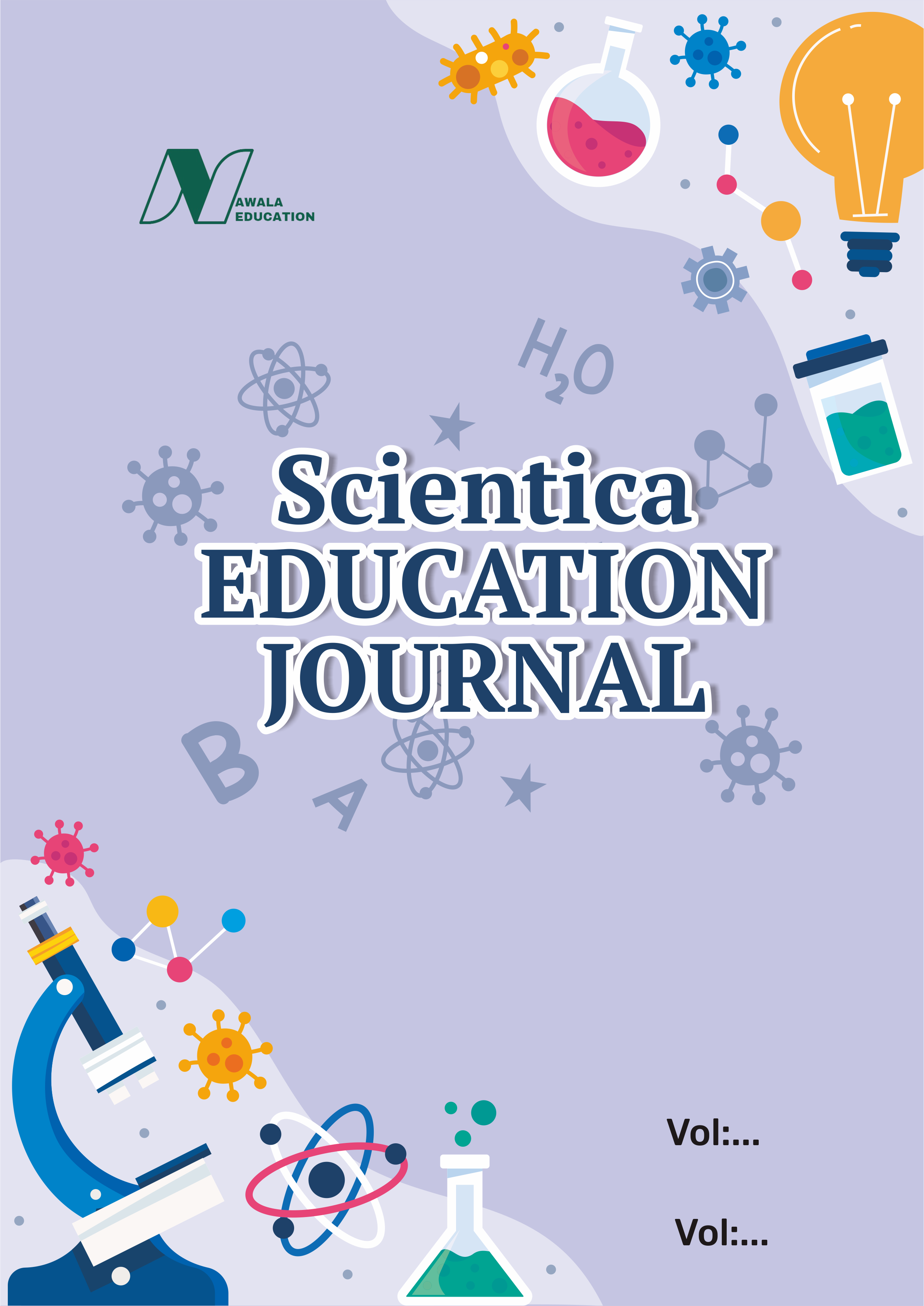SLR: Discovering STEAM Integrated Science Disciplines for Learning Planning for Primary School Students in Indonesia Towards the Era of Society 5.0
DOI:
https://doi.org/10.62872/5aqcnd04Keywords:
Elementary School, PCR (Planning, Conducting, Reporting), SLR (System Lietarture Review), STEAMAbstract
This research aims to find elements related to STEAM from 100 Google Scholar indexed articles resulting from scientific research. Elements related to STEAM can be implemented in elementary school students in facing the era of society 5.0. The method used in this research is the SLR (Literature Review System) PCR model (Planning, Conducting, Reporting) with the aim of systematically reviewing the literature to find elements related to STEAM based on research results from the last 7 years (2017-2024). The research results showed that other elements were compared with STEAM, such as language, social sciences, economics, religion, culture and literacy with the terms STREAM, SELAMeT, STREAME, STELAM and STEAMS and were even used as a basis for curriculum development such as in South Korea with the term WS-STEAM . Based on these findings, there are elements that can be used as a reference in developing learning plans in elementary schools towards the era of society 5.0 which are in accordance with the national basic education curriculum, especially in elementary schools in Indonesia, namely language, social (including culture and economics in social science learning ), religious, and literacy.
Downloads
References
Agustina, T.W., Rustaman, N.Y., Riandi, & Purwianingsih W. (2021). Membekalkan Kreativitas Mahasiswa Melalui Strategi Pembelajaran Berbasis STREAM (Science-Technology-Religion-Engineering-Arts-Mathematics) Menggunakan Konten Bioteknologi Tradisional. BioEdUIN, Jurnal Program Studi Pendidikan Biologi, 9(1), 43-52. DOI: http://dx.doi.org/10.15408/es.v12i2.17605
Ardwiyanti, D., Prasetyo, Z., K., & Wilujeng, I. (2021). STEM research trends in indonesia: A systematic literature review. Journal of Science Education Research, 5(1), 38-45. DOI: http://dx.doi.org/10.21831/jser.v5i1.41752
Azizah, W., A. Sarwi, & Ellianawati. (2019). Pendekatan STREAM terhadap peningkatan Kemampuan Berpikir Kritis Siswa Sekolah Dasar. Seminar Nasional Pascasarjana UNNES, Pp. 461-466. Semarang. UNNES. https://proceeding.unnes.ac.id/index.php/snpasca/article/download/326/352
Bae, Y. & Lee, J. (2020). Effects of SW-STEAM Education for Elementary School: A Meta-Analysis. Journal of the Korea Contents Association (한국콘텐츠학회논문지), 20(10), 247-258. DOI: https://doi.org/10.5392/JKCA.2020.20.10.247
Buinicontro, J., K. (2018). Gathering STE(A)M: Policy, Curricular, And Programmatic Developments In Arts-Based Science, Technology, Engeneering, And Mathematics Education Introduction To Special Issue of Art Education Policy Review: STEAM Focus. Art Education Policy Review Journal, 119(2), 1-4 DOI: https://doi.org/10.1080/10632913.2017.1407979
Cooper, C. (2019). STEAM Pros and Cons. Artikel blog, https://prepexpert.com/STEAM-pros-and-cons/ Accessed September 17, 2024.
Davidi, E., I., N., Sennen, E., & Supardi., K. (2021). Integrasi Pendekatan STEM (Science, Technology, Enggeenering and Mathematic) Untuk Peningkatan Keterampilan Berpikir Kritis Siswa Sekolah Dasar. Scholaria: Jurnal Pendidikan & Kebudayaan, 11(1), 11–22. https://doi.org/10.24246/j.js.2021.v11.i1.p11-22
Harususilo, Yohanes, Enggar. (2018). Most needed majors and jobs 2020. Compass news, https://edukasi.kompas.com/read/2020/01/01/15214771/8 Accessed September 17,2024.
International Labor Organization, (2012). Indonesia Decent Work Profile. CO Jakarta: Organisasi Perburuhan Internasional.
Juniaty, W., Zubaidah, S., & Supriyono, K., H. (2016). STEAM: Apa, Mengapa, dan Bagaimana. Prosiding seminar nasional pendidikan IPA Pascasarjana UM, 1(1), 976-984. https://www.researchgate.net/publication/322353003_Stem_Apa_Mengapa_dan_Bagaimana
Kızılaslan, A., Sözbilir, M., & Yaşar, M. D. (2012). Inquiry based teaching in Turkey: A content analysis of research reports. International Journal of Environmental & Science Education, 7(4), 599-617. https://files.eric.ed.gov/fulltext/EJ997153.pdf
Korea Foundation for the Advancement of Science and Creativity. (2016). Introduction to STEAM education. Seoul, South Korea: KOFAC.
National Research Council of The National Academies. (2011). Successful K-12 STEAM Education: Identifying Effective Approaches in Science.
Newman, M. & Gough, D. (2020). Systematic reviews in educational research: Methodology, perspectives and application (In Olaf Zawacki-Richter, Svenja Bedenlier, Katja Buntins, Michael Kerres, & Melissa Bond (Eds)), Systematic reviews in educational research: methodology, perspectives and application. Wiesbaden: Springer VS. DOI: https://doi.org/10.1007/978-3-658-27602-7
Rafiuddin, C. Asri Budiningsih, Suwarjo, Megawati, Puspitasari, E., & Harefa, E. (2024). Development of a Social Sciences Learning Model Based on Local Wisdom Pangngadakkang Tupanrita by Utilizing Digital Resources to Improve Prosocial Behavior of Elementary School Students South Sulawesi Province, Indonesia. Revista De Gestão Social E Ambiental, 18(8), e05186. DOI: https://doi.org/10.24857/rgsa.v18n8-062
Rafiuddin, Soesanto, D., Mulyana, Y., & Martiningsih. (2019). Best practice Simposium Nasional 2018: Kumpulan Hasil Pembelajaran STEM. Bandung: Tata Akbar.
Rochanah, L. (2021). Pesona Pembelajaran Bermuatan SELAMeT Pada Peningkatan Host Anak Usia Dini. SELING Jurnal Program Studi PGRA, 7(1), 102-114. DOI: https://doi.org/10.29062/seling.v7i1.737
Thorndike, E. L. (1911). Animal Intelligence. USA: Experimental Studies. DOI: https://doi.org/10.5962/bhl.title.55072
Torraco, R., J. (2005). Writing Integrative Literature Reviews: Guidelines and Examples. Human Resource Development Review, 4(3), 356-367. DOI: https://doi.org/10.1177/1534484305278283
Wahono, R., S. (2015). A Systematic Literature Review of Software Defect Prediction: Research Trends, Datasets, Methods and Frameworks. Journal of Software Engineering, 1(1), 1-16. https://journal.ilmukomputer.org/index.php?journal=jse&page=article&op=view&path%5B%5D=47
Downloads
Published
Issue
Section
License
Copyright (c) 2024 Rafiuddin Rafiuddin, Syarifuddin Syarifuddin, Saparuddin Saparuddin, Nurjihadin Nurjihadin, Farah Alfian Ghofar Rahmat (Author)

This work is licensed under a Creative Commons Attribution-ShareAlike 4.0 International License.

This work is licensed under a Creative Commons Attribution-ShareAlike 4.0 International License.











